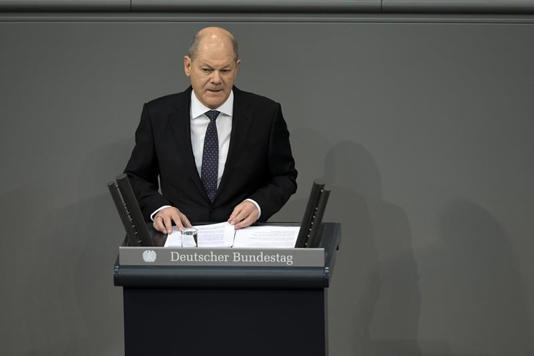
The Canadian Press
FRANKFURT, Germany (AP) — German Chancellor Olaf Scholz vowed Tuesday that his government will work “as fast as possible” to solve a budget crisis, but he offered few details on how he would achieve his goals of promoting clean energy and modernizing the struggling economy after a court decision struck down billions in planned spending.
Scholz and his quarrelsome governing coalition must decide what to cut next year after Germany’s top court ruled that 60 billion euros ($65 billion) in funding for renewable energy projects and relief for consumers and businesses from high energy prices caused by Russia’s invasion of Ukraine violated debt limits set out in the constitution.
Cuts that need to be made next year could further slow down what is already the world’s worst-performing major economy.
Germans “need clarity in unsettled times,” Scholz said in a speech to parliament. He promised that the government would not abandon its goals of sharply reducing carbon emissions from fossil fuels and protecting social spending.
Speaking over outbursts of derisive laughter from opposition members, Scholz said it would be “a serious, an unforgivable mistake … to neglect the modernization of our country.”
In terms of where to reduce spending, he said a cap on consumers’ utility bills is no longer needed because energy prices have fallen, although the government would act if they rose again. “You’ll never walk alone,” Scholz said, quoting the song title in English.
The now-banned spending was aimed at some of the long-term problems plaguing growth in Europe’s largest economy, such as the need to invest in new sources of affordable renewable energy like wind, solar and hydrogen and to support battery and computer chip production.
That has led to calls from some to loosen the debt limits because they restrict the government’s response to new challenges.
But Scholz’s coalition of Social Democrats, Greens and pro-business Free Democrats doesn’t have the two-thirds majority to do that without the conservative opposition, the Christian Democrats, who brought the legal challenge in the first place.
